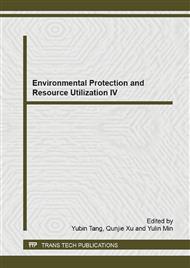p.2173
p.2177
p.2189
p.2197
p.2201
p.2205
p.2210
p.2215
p.2219
Investigation on Circulating Path of Injected Water for High Water-Cut Oilfield
Abstract:
In this paper, the indexes have been determined for identifying ineffective injection-production circulation and corresponding mathematical model was constructed with fuzzy theory. Application examples show that this method is simple, fast and accurate. For high and extra-high water cut oilfields, because of the long-term erosion of injected water, there are some high penetrative channels between the injection and production wells, resulting in most injected water along the channel to cause the invalid injection and production, for which it is hard to increase water flooding swept volume, causing flooding and high water cut well and reducing oil production. To improve the effectiveness of water injection to achieve stable yields, it is important to take the measures of ineffective injection-production wells profile control, plugging and so on for fast and accurate identifying ineffective injection-production wells. To that end, this paper applied fuzzy theory to establishing the mathematical model for identifying ineffective injection-production wells.
Info:
Periodical:
Pages:
2201-2204
Citation:
Online since:
December 2014
Authors:
Keywords:
Price:
Сopyright:
© 2015 Trans Tech Publications Ltd. All Rights Reserved
Share:
Citation:


